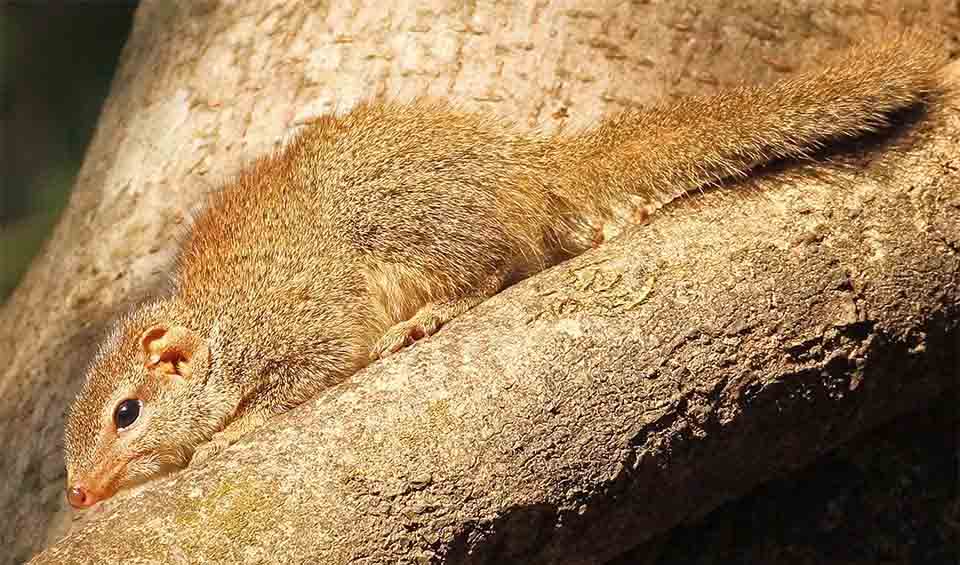Belonging to the family Tupaiidae, this diminutive creature is a marvel of agility and adaptability, demonstrating remarkable prowess in navigating the complex arboreal landscapes of its environment. Despite their small stature, Pygmy Treeshrews exhibit a wide range of behaviors and dietary preferences that make them a fascinating subject of study and an integral component of their ecosystem.
With a diet that encompasses insects, fruits, and small animals, the Pygmy Treeshrew is a versatile forager, utilizing its sharp senses to locate food sources. This varied diet not only sustains the treeshrew but also contributes to the ecological balance, as they play a pivotal role in insect population control and seed dispersal. The consumption of fruits and subsequent dispersal of seeds through their fecal matter facilitates the regeneration of plant life, thus enhancing the biodiversity and health of their forest habitats.
Characteristically solitary creatures, Pygmy Treeshrews, exhibit remarkable individuality in their daily routines. They are diurnal, preferring the daylight hours for their active pursuits. The agility with which they traverse the forest canopy is notable; they are capable of running swiftly along branches and making impressive leaps of up to two meters between trees. Such physical abilities not only aid in their foraging efforts but also provide them with a means of evading predators.
Distribution
 Brunei
Brunei Indonesia
Indonesia Malaysia
Malaysia Thailand
ThailandAnything we've missed?
Help us improve this page by suggesting edits. Glory never dies!
Suggest an editGet to know me
Terrestrial / Aquatic
Altricial / Precocial
Polygamous / Monogamous
Dimorphic / Monomorphic (size)
Active: Diurnal / Nocturnal
Social behavior: Solitary / Pack / Herd
Diet: Carnivore / Herbivore / Omnivore / Piscivorous / Insectivore
Migratory: Yes / No
Domesticated: Yes / No
Dangerous: Yes / No




